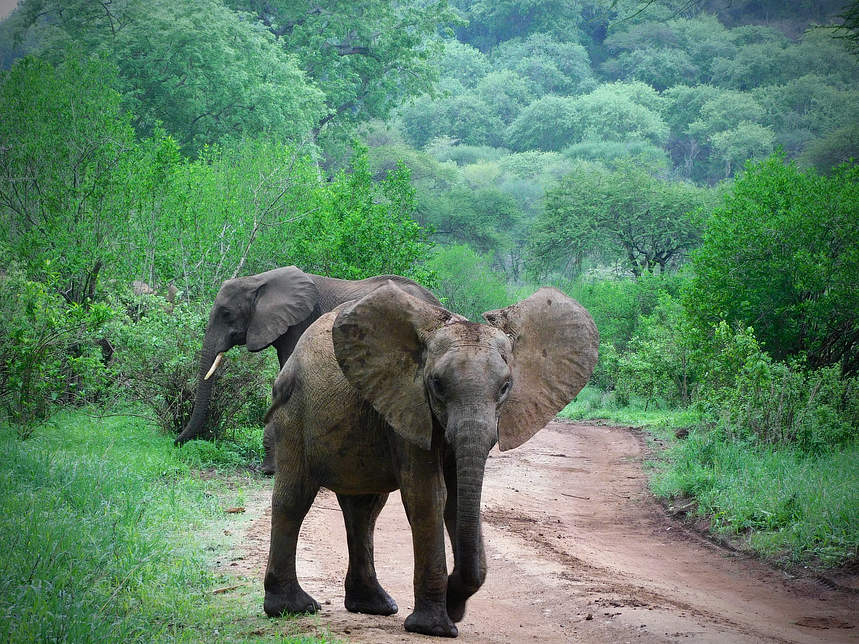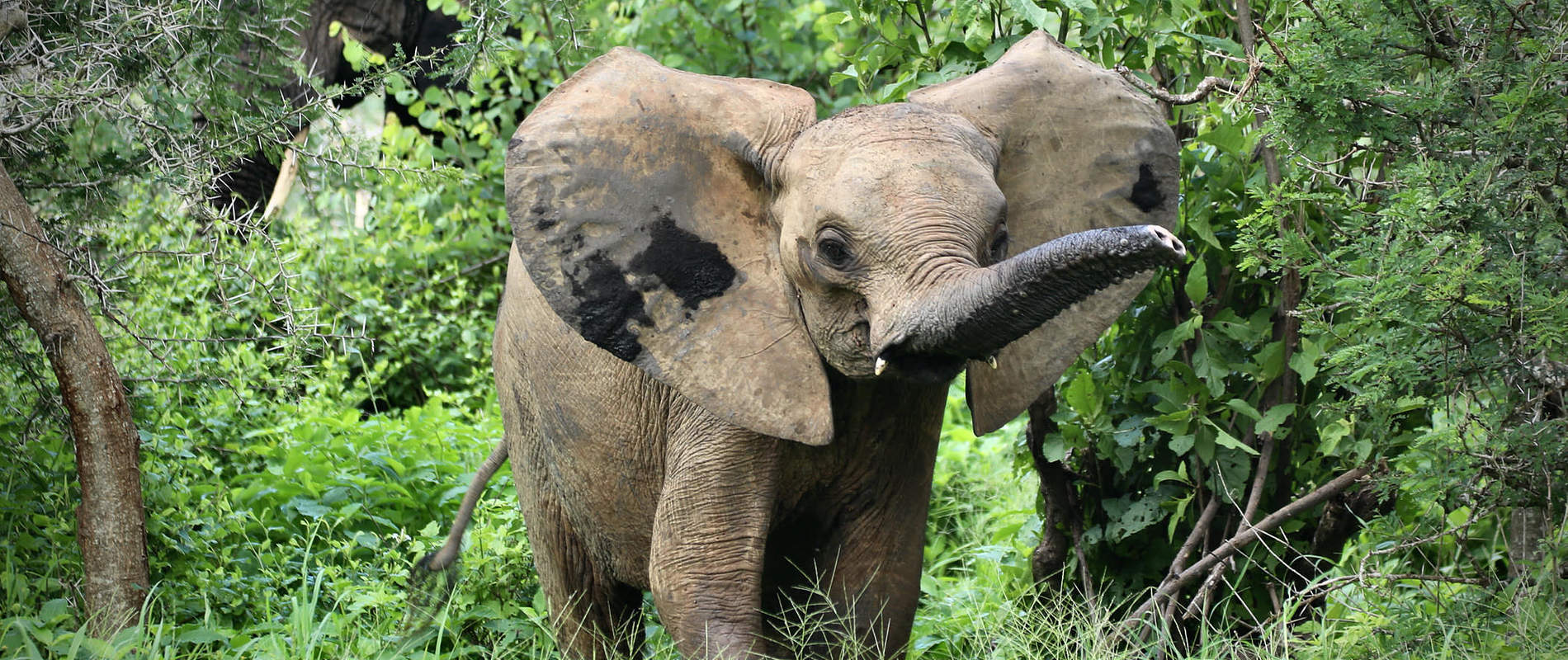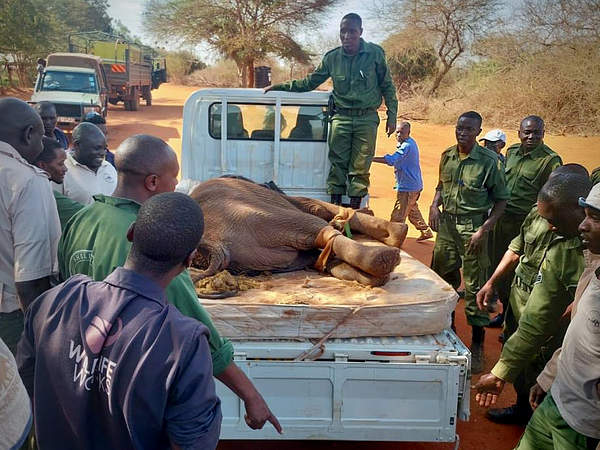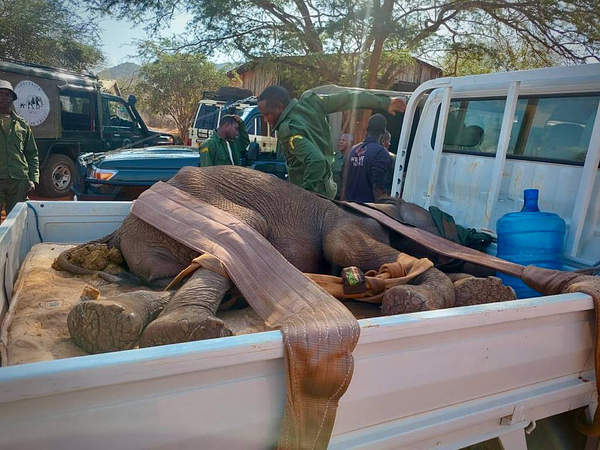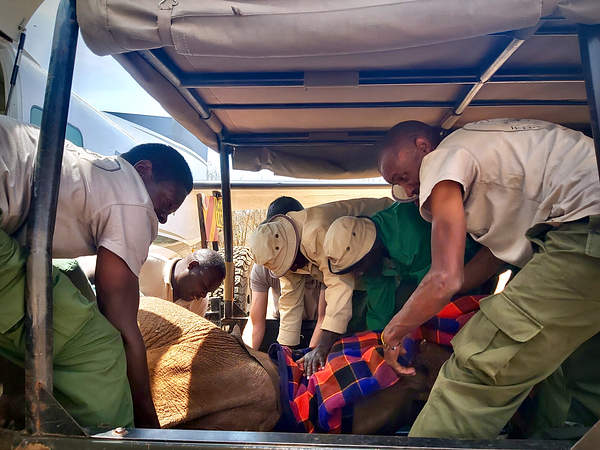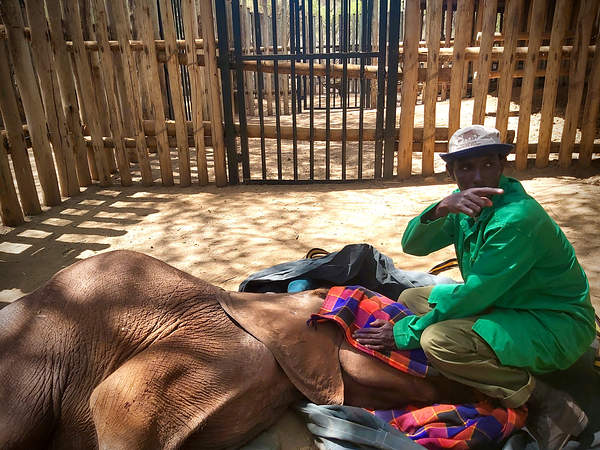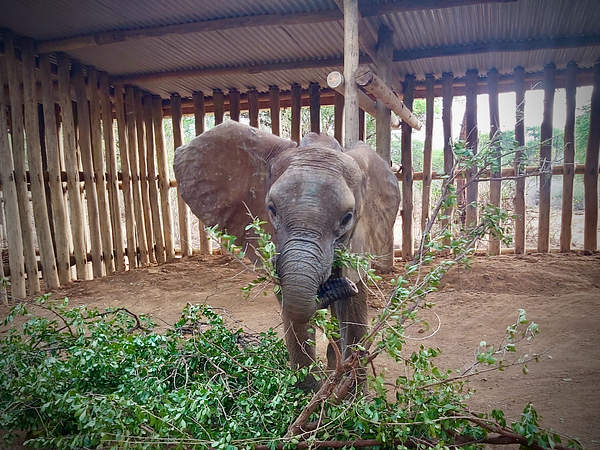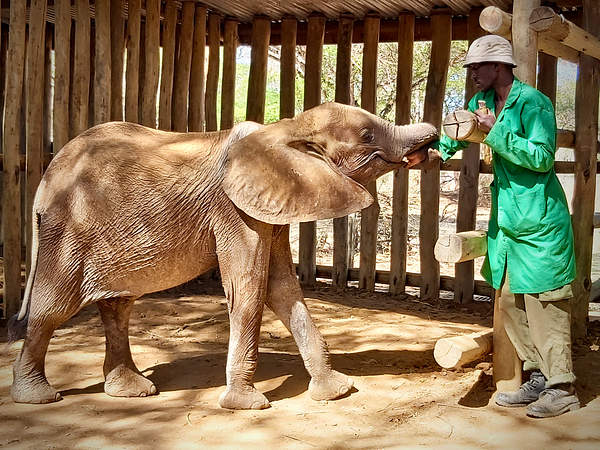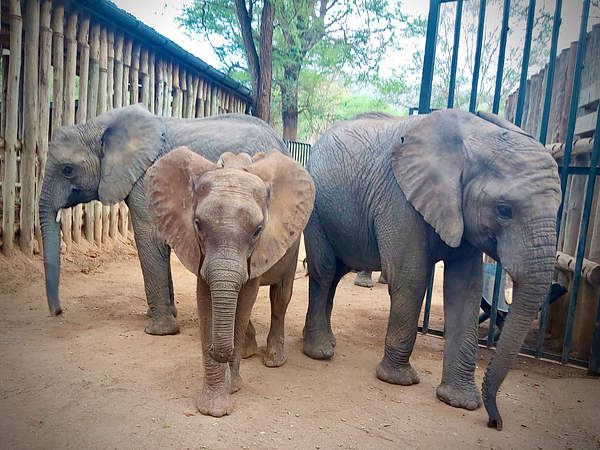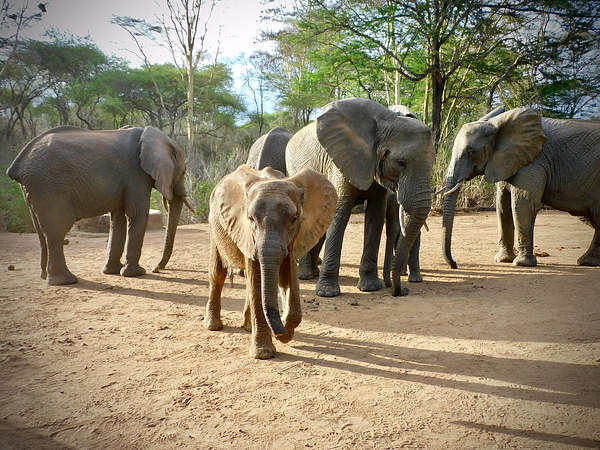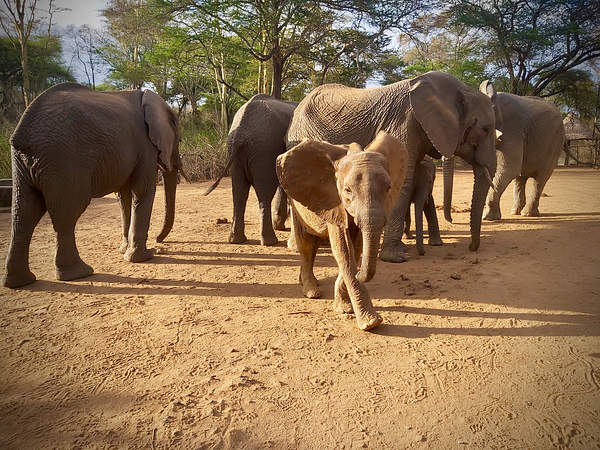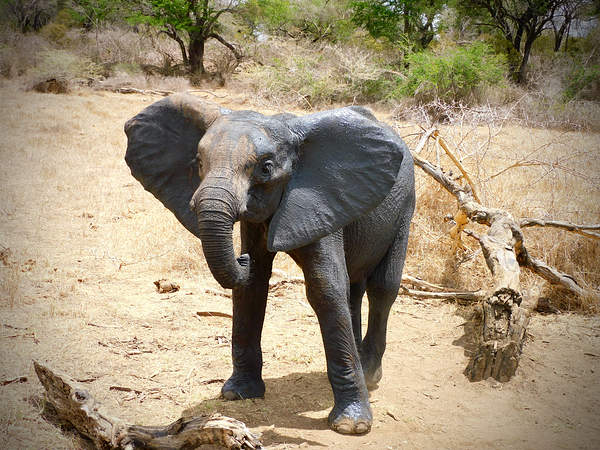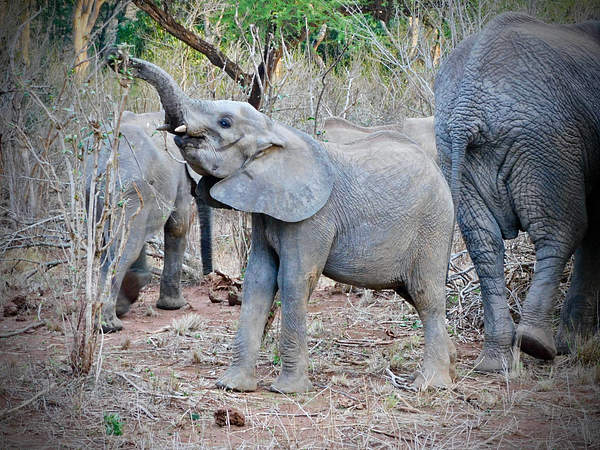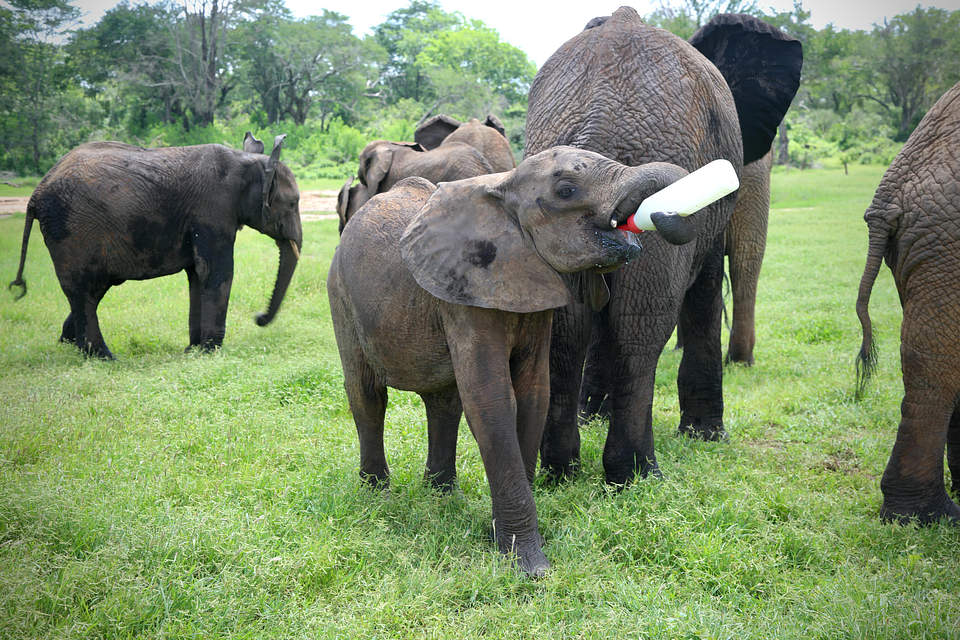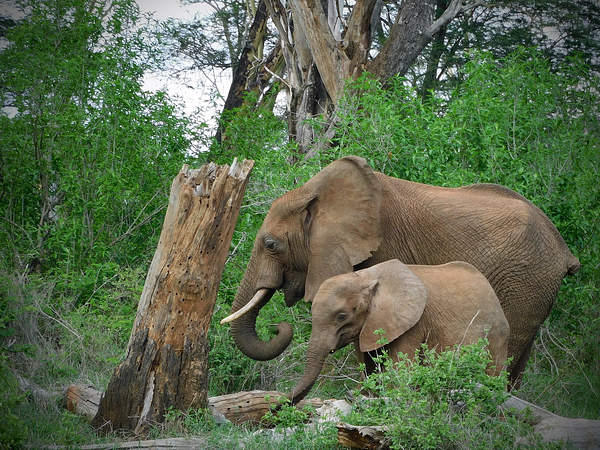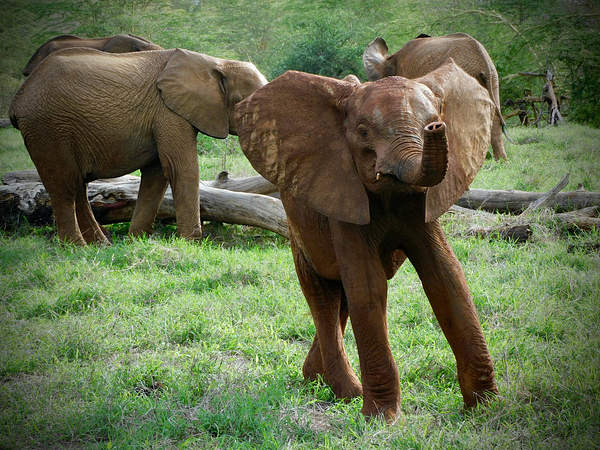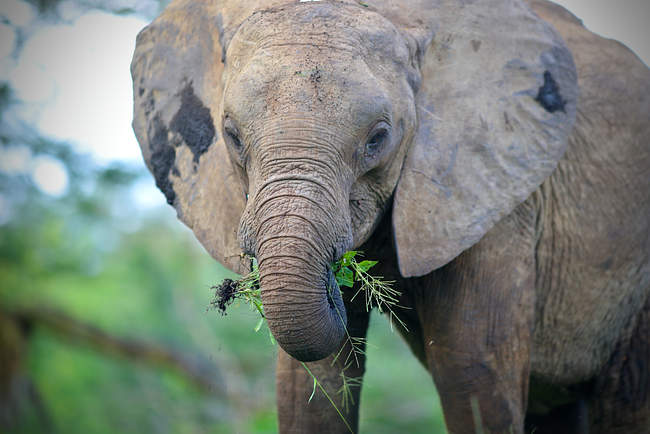Amali means ‘hope’ in Swahili. It is a very fitting name for this little elephant, given the extraordinary circumstances she overcame to survive. Now, Amali is one of our unique orphans who will grow up at Umani Springs.
The Tsavo ecosystem, like much of Kenya, was in the grips of a brutal drought in 2022. Without adequate browse, elephants struggle enormously. It is often the youngest who are the first to fall. Their mothers can barely sustain themselves, let alone produce ample milk for their babies. When a calf grows too weak to keep up with their herd, their family must make the heartbreaking choice to abandon them.
On 14th October, Wildlife Works was patrolling Rukinga Ranch when they spotted a young elephant calf on her own. They spent the next several hours trailing her, in the hopes that her herd would retrieve her, but no one came back for her.
By this point, the calf’s situation had escalated. Like so many drought victims, she was desperately thin and dehydrated. By early afternoon, she had grown too weak to stand on her own. To save her life, an urgent rescue needed to take place. Even then, it would be a fight to keep her alive.
Wildlife Works contacted our Kaluku Operations Room and Dr Limo of the SWT/KWS Tsavo Mobile Veterinary Unit. Wildlife Works handled the in situ rescue — with some very special spectators. That day, Rukinga Ranch happened to be hosting a local high school field trip. About 100 students from communities bordering Tsavo got to witness the operation to save this young elephant’s life, hopefully inspiring future conservationists in the process.
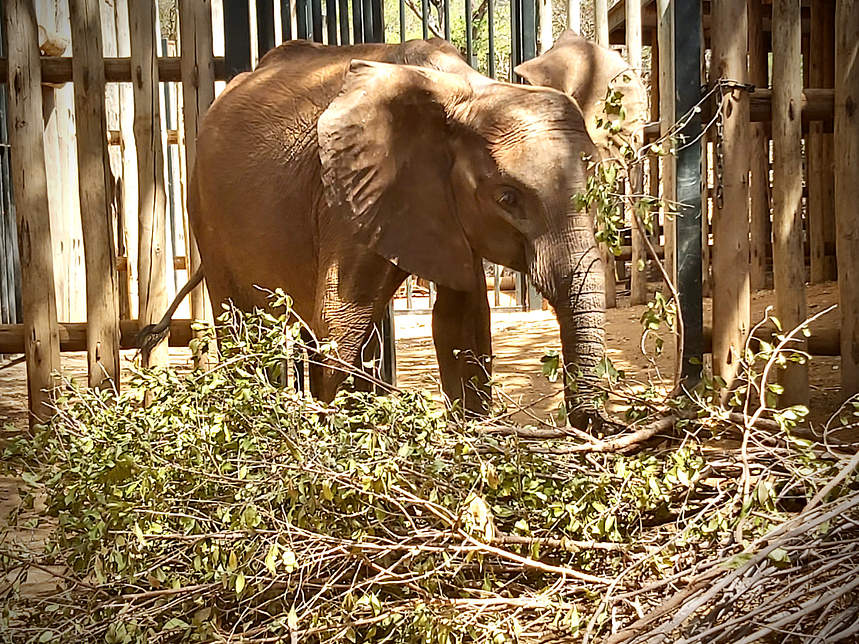
A larger orphan always complicates rescue proceedings. Lying recumbent, Amali was secured onto a board and slid onto the bed of a canter truck, which drove to Maungu airstrip and reversed right up to the cargo door of our Cessna Caravan. It took 12 people, lifting and sliding in unison, to heave her into the aircraft.
It was a very windy day, which made for an exciting take-off. Once airborne, the plane quickly climbed above the turbulence and gave our little girl a smooth journey to the Kibwezi Forest.
Given her slightly older age and stretched resources at the Nairobi Nursery, we decided to bring Amali to Umani Springs Reintegration Unit, which is nestled in the forest. To accommodate the influx of rescues this year, we have built additional stockades at the Nursery, Voi, and Umani. Amali had a new bedroom waiting for her — and based on the rapturous greeting that fellow drought victim Kapei received, we knew she would be a very welcome addition to the Umani herd.
A team of nine was waiting at the Kibwezi airstrip. They seamlessly offloaded Amali onto a truck and drove her to the nearby stockades. Her arrival generated enormous excitement among the Umani orphans. They thought they had reached peak bliss when Kapei landed in their midst — but the addition of another baby sent them over the edge!
Much to the orphans’ chagrin, however, Amali couldn't join them out in the forest right away. She was very, very weak and needed to spend several days recuperating in her stockade, feasting on freshly cut greens and eradicating the parasite load that had ravaged her body.
The first morning Amali was able to join the Umani herd in the forest was a very exciting event indeed. Everyone clustered around her, introducing her to their favourite haunts and walking her through the daily routine.
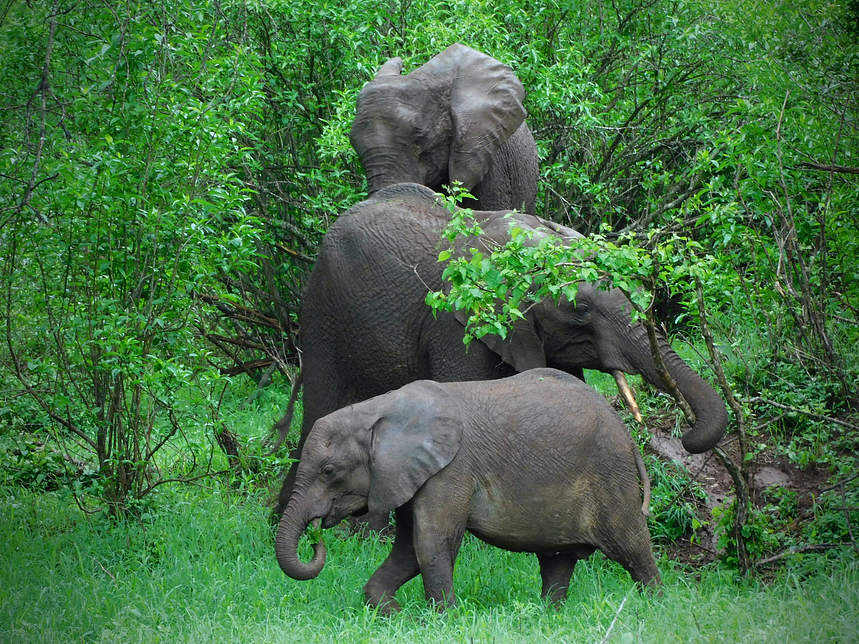
We have learned that new arrivals at Umani don’t have their own bedroom for long — everyone wants to be their roommate! Quanza and Kiasa had clearly been plotting since Amali arrived, because the moment she joined the rest of the herd, they laid claim to her. Now, all three girls happily share one stockade, keeping each other company and munching on nighttime snacks side by side.
Amali came to us as a ravaged victim of the drought. Today Today, she is an elephant transformed, getting plumper with each passing day and surrounded by love from sunup to sundown. She is indeed a symbol of hope in a very difficult time.
